Exercise for a Healthy Body and a Healthy Mind in 2020
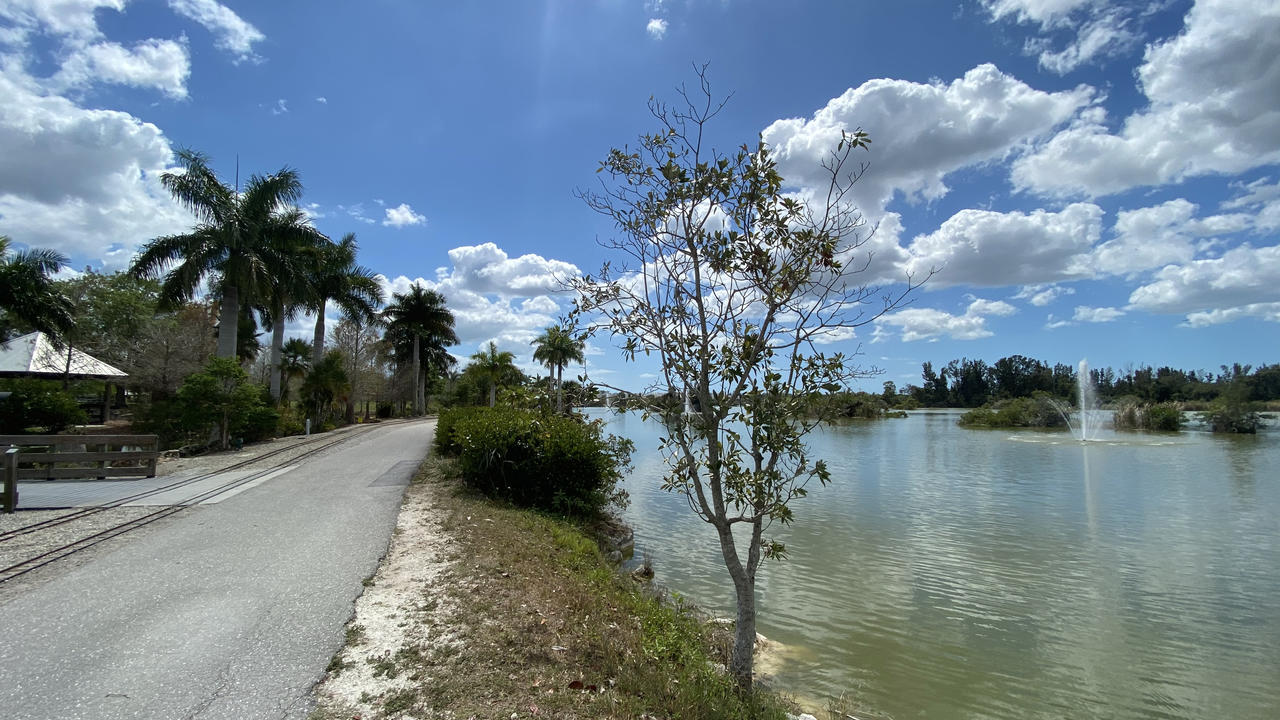
Live in Southwest Florida? Enjoy the trails at Lakes Park for running, walking, and even working out at the fitness stations throughout the park. Photo courtesy of Charly Caldwell II
It’s no secret that we feel good after a workout.
We’ve all experienced it ourselves and countless research supports it. Research has also documented the benefits that exercise can have on mental wellbeing.
Mental illness is becoming one of the biggest contributors to global illness, and is a major cause of morbidity and mortality. Those who live with a mental illness are less active than their counterparts.
It seems obvious then, that fitness has a significant role to play, in terms of both prevention and enhancing quality of life.
When we break down what exercise can give do for us, beyond the aesthetic changes, it is clear to see why it is such an incredible coping strategy for persons with mental illness.
If experienced for long periods of time, loneliness and isolation can...
To Be Your Best, You Must Expect the Best
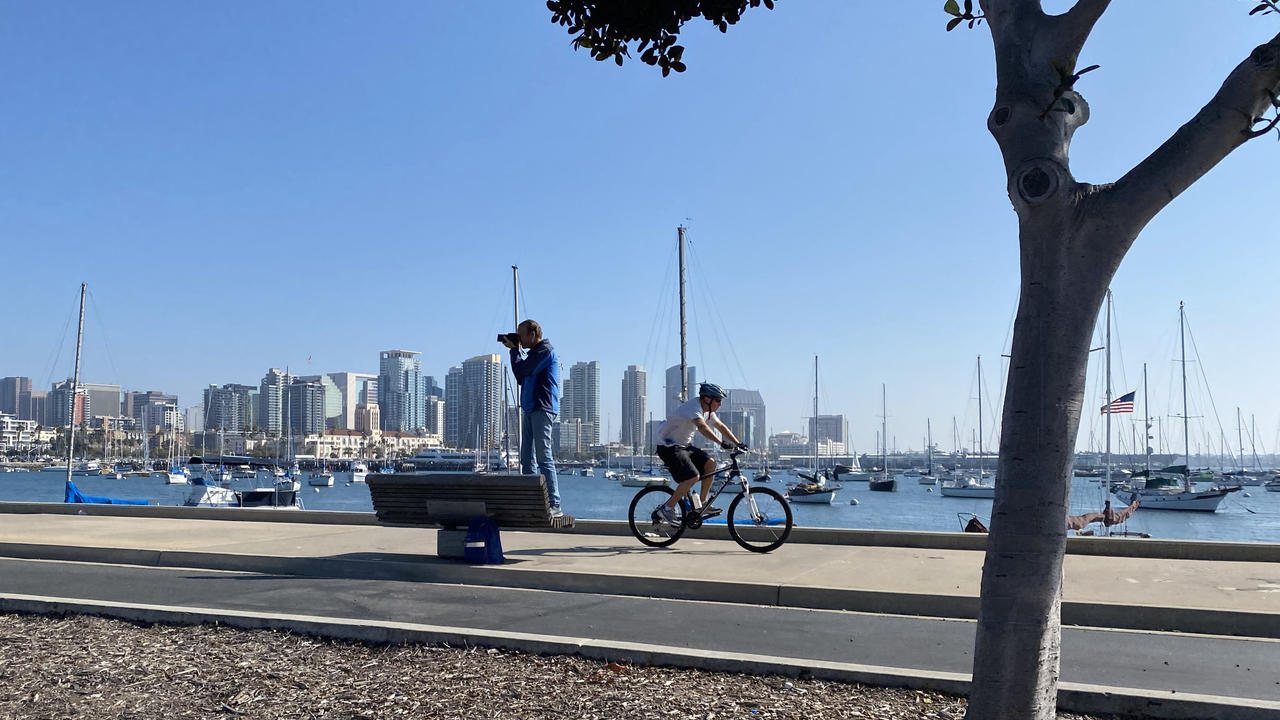
Biking in San Diego on a beautiful, February day - Photo Courtesy of Charly Caldwell II
For anyone who has hit a plateau or feels that the return on their investment of time is lacking results, read on...
Everyone wants to be stronger, faster, leaner, but just wanting it isn’t enough.
If you want batter results from your training, you must expect more from yourself.
Demand the best for your body.
Whether you’re pedaling away in a group exercise class or grinding your bike up a hill, what do you do when the going gets tough?
When your lungs start screaming and your thighs begin burning you’ve got to get that inner voice of motivation louder.
Remind yourself of the reasons you’re working so hard.
- Can you go harder?
- Can you go longer?
- What limits are you placing on yourself?
- Are they genuine or are they just excuses?
- Do you want to walk away from every training session feeling like you’ve done your very best?
Only you know when that is…
...
Train Smarter for Peak Performance

Josie, Bill and I filming, as I coach them, for our Video Training Library (learn more about our powerful training library here).
As a coach, I am routinely asked what an athlete can do to improve their performance.
This is usually preceded by a tale of woe about some lack luster race result.
Fortunately for me, a quick skim of their recent racing splits and training logs makes it fairly easy to identify where their problems originate.
If you’re looking for peak performances this season, regardless your sport, you need to be mindful in your efforts and train smarter, not harder.
Error #1, Going out too fast.
This is easy to identify by simply looking at your splits.
Whether you are swimming, biking, running, walking, playing a tennis match or a round of golf, if you have not managed your energy and the second half of your sport is slower than the first half, you went out too fast.
To avoid this, commit to practicing goal specific pacing for at least half your race distance...
Use Bodyweight Exercises to Incorporate Functional Conditioning Into Any Workout
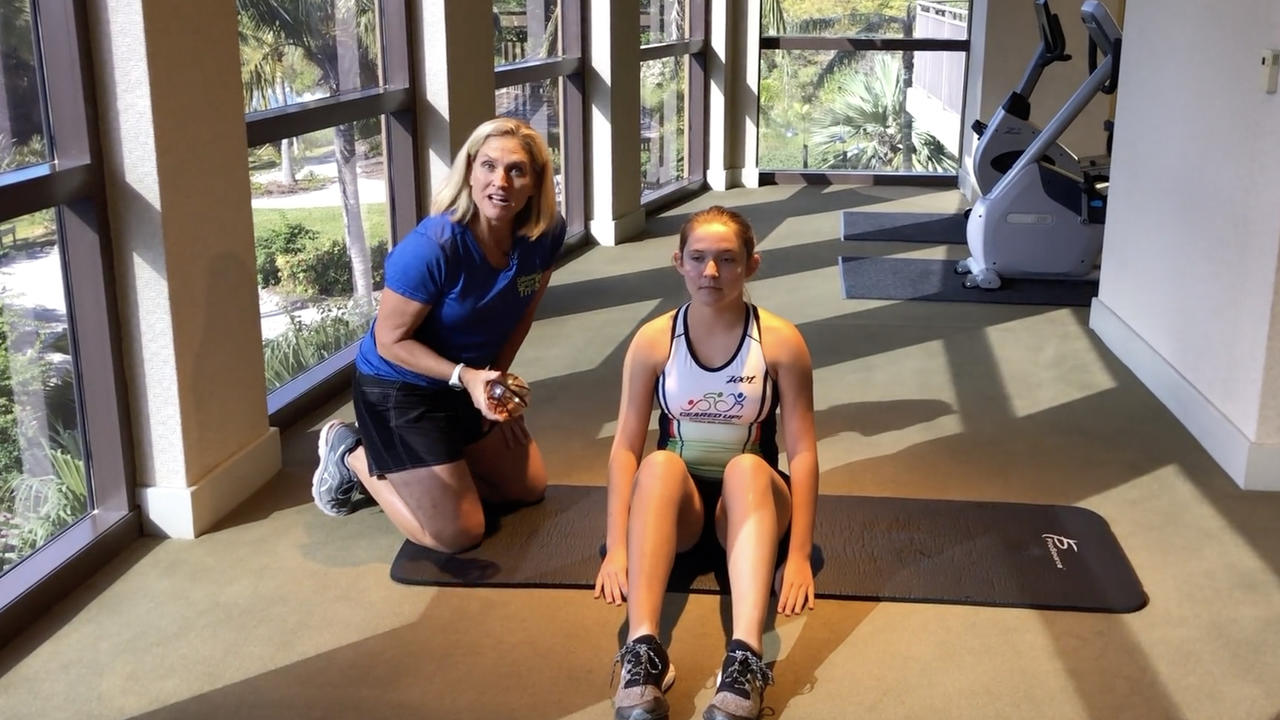
Angie and Josie working in the Fitness Center - filming for our incredibly powerful Membership Video Library.
‘Functional’ and ‘functionality’ have become popular buzzwords in the fitness industry over the past 10 years.
While isolation exercises (i.e. standard chest press or mid-row) are still common, compound and multi-planer movements (i.e. lunge with rotation) have solidified their place in fitness programing by demonstrating their effectiveness with enhancing everyday movements that would otherwise cause injury to an ill-prepared body.
Our increasingly sedentary lifestyles mean that our genetically engineered highly mobile bodies are immobile for several hours a day (sitting at a desk, watching TV) and thus we develop not only postural weaknesses, but also strengthen deficiencies for activities like gardening, household chores, and recreational activities such as walking the dog, playing sports and family activities.
Traditional muscle conditioning...
Stress: The Good and the Bad

A beautiful, stress relieving Florida sunset on Naples Beach (at 5th Ave S) on Thursday, January 23 (Thank you to Charly Caldwell II for the photo!)
Some elements of stress are good for us.
The fight or flight responses that are hard-wired into our nervous system can save our lives. The knee-jerk response of jumping out of the way of a moving vehicle, the sharp intake of breath, our hearts racing, the rush of adrenaline.
This is the rush that those who love rollercoasters, sky-diving or other such intense activities crave.
This is good stress.
Our bodies have a chance to process the increased cortisol released into our systems, and we will often feel a bit of a high afterwards. This same stress can be a great motivator to try new things and to push beyond our comfort zones.
When this same chemical reaction in our bodies turns against us, it is almost simultaneous to when we turn against it.
When our flight or fight mechanism kicks in to situations we have no outlet for.
Cancelled...
Staying in Shape is Easier Than Getting In Shape

The running path in Lakes Park, Fort Myers, Florida - so many of our Geared Up! athletes run this beautiful path to stay in shape. Join us if you'd like!
The holidays are typically extremely busy and extremely indulgent.
All the holiday dinners coupled with holiday hospitality events and in short, health and fitness are not generally found at the top of Santa's list.
With December’s month long celebrations, often in excess, many people find themselves committing to firm New Year’s resolutions to get fit and lose weight.
It’s not surprising that many people struggle to maintain a healthy focus in December.
To enjoy the holiday celebrations and maintain a healthy focus, follow a few festive fitness guides and you’ll be ahead come January 1.
It is paramount you maintain your fitness program. One of the hardest things to do when your time is in short supply is to maintain an exercise routine.
If you usually exercise a few times a week, the additional...
Top Performance Requires Mental Training, Too
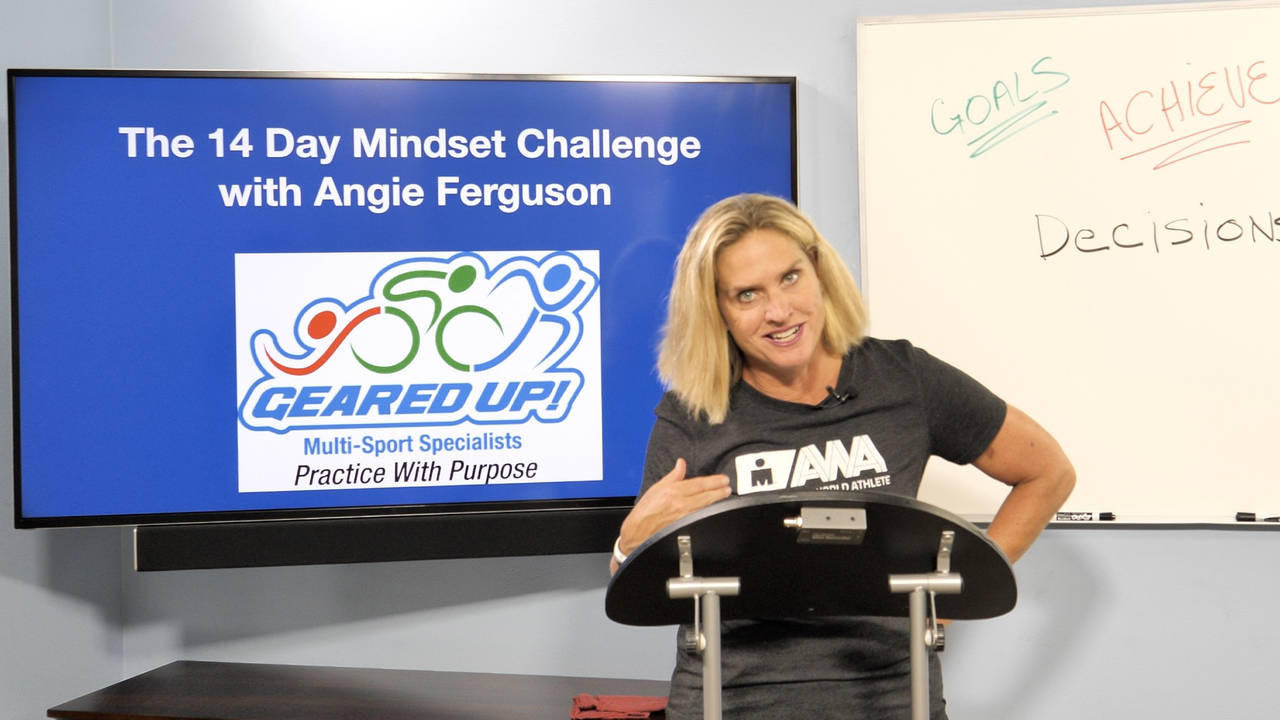
Ask any coach what distinguishes a good athlete from a great one and they’ll tell you that great athletes are both physically and mentally trained.
In fact, mental training or the mind games we play with ourselves is one of the most overlooked aspects of a well-rounded training program.
We give the topic a lot of lip service but rarely do we actively engage in training to make us mentally stronger.
We could debate physical preparedness vs mental readiness for hours.
I believe that since we associate the physicality we are seeing when watching a sports event, we learn to train the body and ignore the mind.
I went to university on a track and field scholarship and never once did a coach or mentor mention the value of being mentally prepared.
However, learning to cognitively look at physical performance, just as you practice interval sets or tennis volley’s, will enhance your overall performance and better prepare you for whatever obstacles or challenges you may face.
...
Managing Disc Injuries with Healthy Exercise
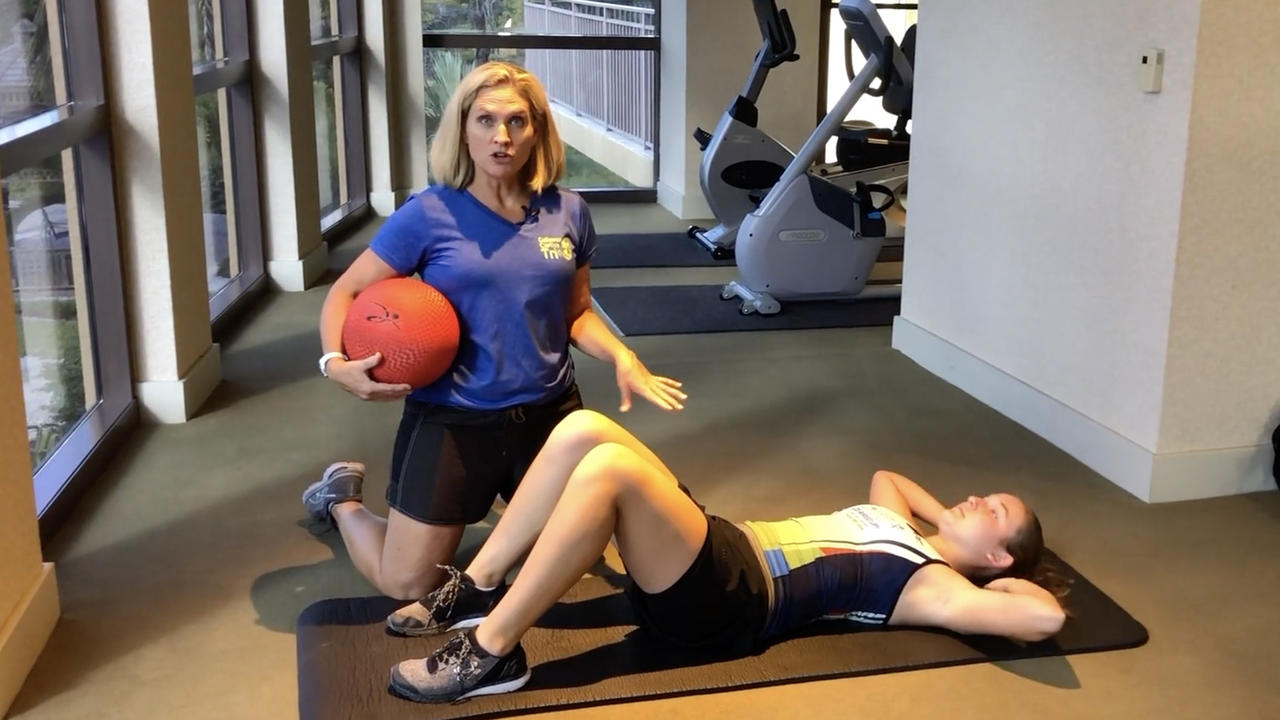
Sitting at my desk, researching this article, I come across so much information about disc (spine) injuries.
It seems that ‘Google’ is extremely good at defining what a disc herniation is, how it happens and when to go to a doctor, but not so good at providing helpful information regarding management of the injury.
Most of the websites veer towards recommendations of bed rest, NSAIDS (anti-inflammatory drugs) and cortisone injections, with a visit to your GP if pain persists.
In a nutshell, rest and drugs.
There are very few sites that encourage people to seek some hands-on treatment, and even fewer that provide any information about specific exercise programs for disc injuries.
Let’s change that by focusing on some preventative exercises you can add to any existing program.
However, if you currently have a disc injury, remember to always consult a health care professional (doctor or physical therapist) for diagnosis and advice prior to starting an exercise program....
Respiratory Muscles Need Conditioning to Maximize Performance

On a recent run, several athletes complained of acute tightness in their chests which I speculated was partly pollen induced and an increase in humidity.
However, upon further examination, I noticed they were breathing very shallowly and part of their weakness was due to good ole laziness of the respiratory muscles.
Correct breathing techniques can help improve performance, delay the perception of fatigue and reduce recovery time … but it takes work.
Research has shown that inefficient breathing and respiratory muscle weakness can lead to a low tolerance of exercise and a misconception of fatigue.
Unfortunately, this misreading of fatigue often leads to prematurely quitting a training session or exercise set and ultimately prevents individuals from breaking plateaus and reaching their goals.
Correct breathing occurs when the volume and rate of oxygen uptake matches the muscle tension for a given activity level.
This means that as intensity or duration of activity increases,...
Harness Power to Develop Running Efficiency
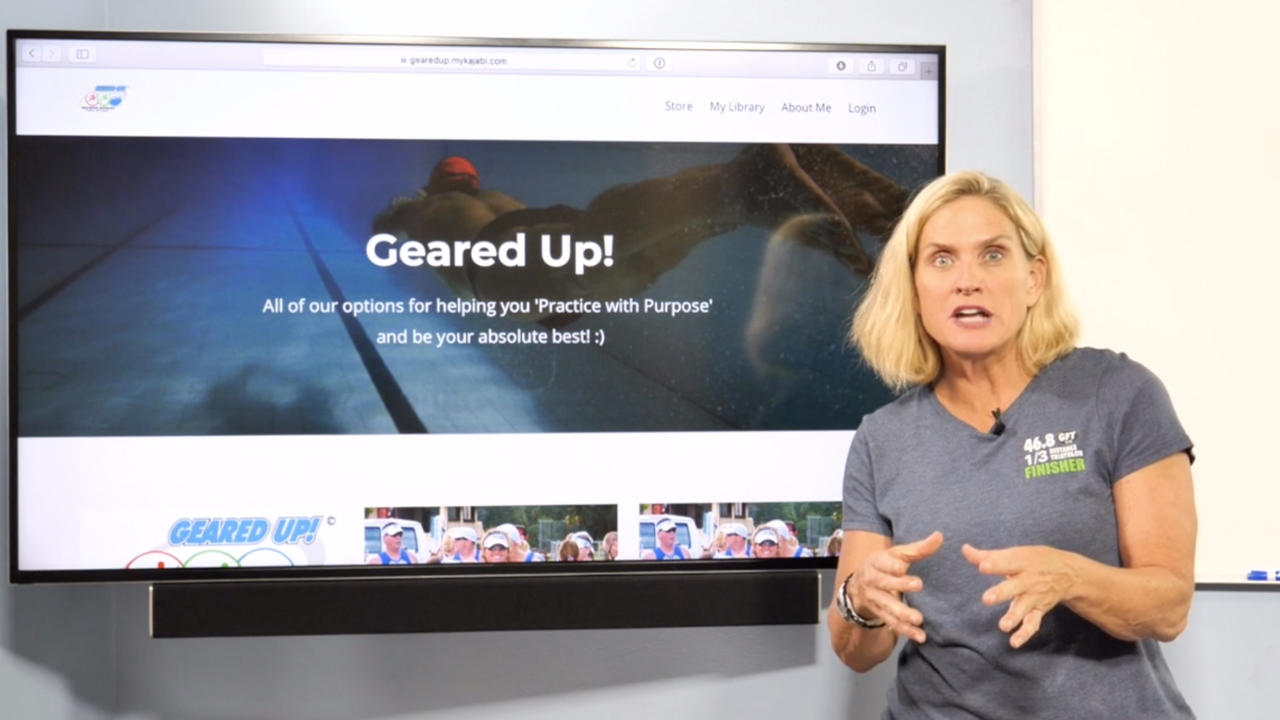
Harness training involving weighted sleds, parachutes and resisted and assisted partner sprinting is becoming increasingly prevalent in gym and outdoor training environments.
However, before it filtered across to mainstream fitness, it had its origins in sport-specific training.
Track and field has been utilizing such training methods for nearly the past 3 decades, and it has become more prevalent in elite team sports such a football, soccer and hockey.
The application of harness training really excels in the development of running speed, stride efficiency and acceleration.
Pretty much any type of resisted sprinting activity, whether it’s with a sled, a chute or partner training, works on force development, because to overcome the given resistance, you must generate more force while you’re in contact with the ground.
In addition, by slowing movement down using resistance, participants can feel the correct body position they are striving to achieve and improve their...

